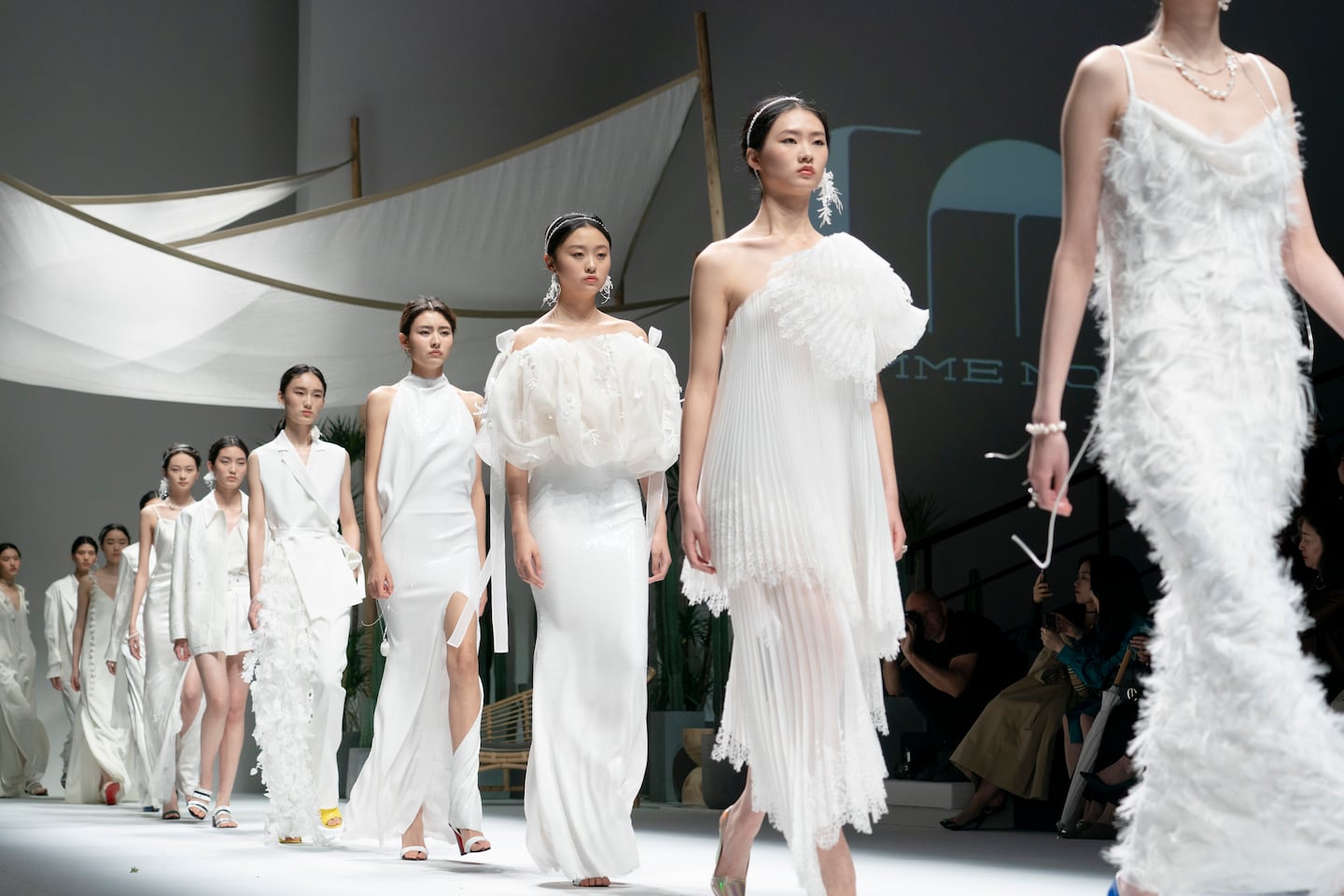
The Business of Fashion
Agenda-setting intelligence, analysis and advice for the global fashion community.

Agenda-setting intelligence, analysis and advice for the global fashion community.

Shanghai’s busy calendar of fashion week events came to a close last night, after eight days featuring more than 100 live shows, livestreamed consumer-facing sales events, showrooms and trade shows.
“Shanghai Fashion Week is such a magical platform, attracting professionals from all over the country and the world to gather here,” said Xiao Xue, Elle China’s former long-time editor-in-chief, who was recently appointed a Shanghai Fashion Week ambassador.
This Autumn Winter 2021 edition was the second in-person fashion week hosted in Shanghai since China re-opened following its most serious outbreak of Covid-19 infections in the first quarter of 2020.
Last October’s fashion week, the first edition back, saw the local fashion community noticeably excited to be able to gather in-person again, but a widespread lack of certainty about what the week would bring in terms of sales and commercial opportunities.
ADVERTISEMENT
The results exceeded almost everyone’s expectations, with a re-shoring of fashion consumption domestically fuelling business for China’s growing network of multibrand stores, and those stores, in turn, devoting more budget to Shanghai Fashion Week as they were prevented from traveling overseas to showrooms in Paris, Milan, London and New York.
“Opportunity lies in the fact that, in this special period, Chinese consumers have turned to domestic designer brands, and the business model of the Chinese fashion market is constantly updating,” explained Lv Xiaolei, commonly known as Madame Lv, the vice-secretary general of Shanghai Fashion Week.
That experience meant brands, showrooms and organisers came into this edition with a great deal of confidence, and the crowded showrooms and show venues throughout the week indicate they had good reason for this positivity.
According to figures from the official Mode Shanghai trade show, the number of buyers at this edition, versus October, was up 153 percent. Many brands on site also reported an increase in orders, with young UK-Shanghai label, Nikita Cai up 300 percent, cashmere-focused Byarn seeing a 60 percent rise and Han Lu Lu reporting a 30 percent increase in orders.
In the future, Madame Lv predicts even more pronounced growth.
“The current market share of designer brands is still not large, but we think there will be very rapid growth in the future,” she said, adding that the current foundation was being well-served by China’s dual fashion and economic development.
“We must seize the opportunity to pave the way for the future,” Lv said.
In the tents at Xintiandi’s Taiping Park, established Chinese brands, including Comme Moi, Leaf Xia, Yes by Yesir and Dawei, staged runway shows, while the Labelhood platform for independent designer showcases ran concurrently at the Tank Museum in Shanghai’s arts and cultural West Bund hub with featured designers including Angel Chen, Shushu/Tong, Private Policy and Oude Waag.
ADVERTISEMENT
Many of these young designers have come of age over recent fashion week seasons, displaying new levels of confidence and maturity as they grow from being graduate designers to fully-fledged brands.
International brands also took the opportunity to leverage the visibility of Shanghai Fashion Week to stage their own events, with Dior hosting its first show for a womenswear pre-collection anywhere in the world as part of the Shanghai Fashion Week schedule.
Versace, meanwhile, not only hosted an underwater-themed immersive pop-up at Shanghai’s luxury Plaza 66 mall, but also debuted a series of video interviews on the theme of female empowerment that included insights from Madame Lv, as well as actress Yi Song, and League of Legends’ host Duan Yushuang (also know by the English name Candice).
With consumers tightening their belts in China, the battle between global fast fashion brands and local high street giants has intensified.
Investors are bracing for a steep slowdown in luxury sales when luxury companies report their first quarter results, reflecting lacklustre Chinese demand.
The French beauty giant’s two latest deals are part of a wider M&A push by global players to capture a larger slice of the China market, targeting buzzy high-end brands that offer products with distinctive Chinese elements.
Post-Covid spend by US tourists in Europe has surged past 2019 levels. Chinese travellers, by contrast, have largely favoured domestic and regional destinations like Hong Kong, Singapore and Japan.